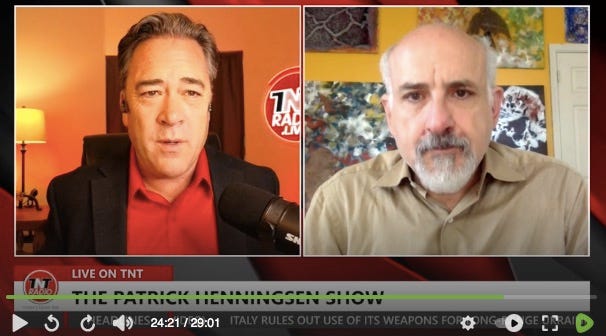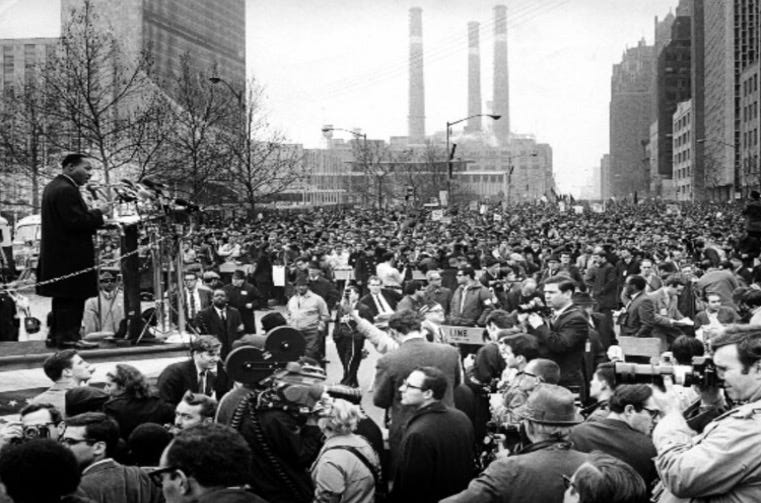The US Government is Using "Ceasefire" Rhetoric to Try to Obstruct International Law in Gaza
This has in fact been a pattern, including in 1967, when the occupation of Gaza began.
The Biden statement on an alleged “ceasefire” and much hype since were likely intended as a way to sabotage moves at the UN, in particular a UN Security Council resolution implementing the ICJ Orders on Rafah; and spare the Biden administration yet another veto. Most importantly, the axis of genocide wants to prevent the implementation of actual international law through the General Assembly’s Uniting For Peace process, which would open the door to actual action, like placing sanctions on Israel — the subject of my latest major piece. I noted that Uniting for Peace was used to solve the 1956 Suez Crisis, in which Britain and France were forced to withdraw, and Israel was compelled to withdraw from Gaza in 1957. Algeria was set to introduce a UNSC resolution on the ICJ Orders, but it seems to be yielding to the US government on its at best dubious “ceasefire” resolution. The US government is effectively weaponizing the alleged call for a “ceasefire” as an instrument against international law and actual peace.
I think I was on target on much of this when I recently spoke with Patrick Henningsen:
Today, I put out the following news release, which got into some of the same themes with respect to US and Israeli government machinations in 1967, when the occupation of Gaza began:
1967 War Myths Key to Gaza Today -- Interviews Available
Israel took Gaza, the West Bank, Sinai and the Golan Heights in the June 1967 War. A leading legal scholar takes issue with widespread myths about that war and argues that a proper understanding is key to addressing Gaza today.
JOHN QUIGLEY, quigley.2@osu.edu
Professor emeritus of international law at Ohio State University, Quigley's books include The Six-Day War and Israeli Self-Defense, The Statehood of Palestine: International Law in the Middle East Conflict, (both Cambridge University Press) and The Ruses for War: American Interventionism Since World War II.
Last year, his paper "The Illegality of Israel’s 1967 Occupation of Palestine Territory" was published. He said today: "Most people, even those knowledgeable about the Middle East, if asked how Israel portrayed its invasion of Gaza and Sinai in 1967, will say that it claimed self-defense on a rationale that Egypt was about to invade. In fact, that is inaccurate. In the Security Council, Israel claimed that Egypt had initiated hostilities by shelling three Israeli settlements just across the frontier from Gaza. The United States knew that claim was false, because Foreign Minister Abba Eban had just been in Washington trying to convince the Lyndon Johnson Administration that Egypt would attack. Johnson’s response to Eban was that there was no reason to think that Egypt would attack.
"Israel was afraid that Johnson would do what President Eisenhower had done when Israel invaded Gaza and Sinai in 1956, namely, pressure it to withdraw. Eban wanted an assurance that Johnson would not call Israel to account if it invaded. He explained that Israel was working on a strategy to deceive Egypt into initiating hostilities. The Israel Defense Force had outfitted a ship on the African coast, that would sail into the Strait of Tiran, hopefully drawing fire from the Egyptian shore batteries. Israel would then launch its invasion. The oral exchanges on this plot are recorded by the U.S. Department of State in declassified documents in its Foreign Relations of the United States.
"In the event, Israel simply invaded without sending the ship, claiming for cover the nonexistent shelling by Egypt. The USSR moved in the Security Council for a resolution calling on Israel to withdraw. Member states were confused about how the hostilities began. The United States, which knew that Egypt had not shelled Israeli settlements, kept silent on the issue but opposed the call for an Israeli withdrawal.
"Once in occupation, Israel stopped claiming that Egypt had shelled Israeli settlements, instead acknowledging that it attacked first, but saying that it did so only because Egypt would have attacked it. That false narrative is widely accepted down to the present. In 2000, it was invoked by Israel at the Camp David summit as a reason why Israel should not have to withdraw from Gaza and the West Bank of the Jordan River.
"The issue is key in the current situation in Gaza. The fact that Israel invaded in 1967 means that it has no right to have troops there, even if it were to comply with humanitarian law in its bombardments and treatment of the Gaza population. Its obligation to withdraw is not dependent on Hamas stopping military action against it. The UN Security Council is unlikely to order Israel to withdraw, but the UN General Assembly could ask UN member states to call on Israel to withdraw. It could organize diplomatic and economic sanctions to pressure Israel to comply." See a talk by Quigley regarding the 1967 War.
See:






Official statements as durable as the pier in Gaza.. what a spectacular commitment to lies!
Attempted regime change?
https://www.nytimes.com/2024/06/01/world/africa/south-africa-election-results.html
Proposed US retaliation against S. Africa?
HR 7256U.S.-South Africa Bilateral Relations Review Act
This bill requires the President to make determinations about the relationship between the United States and South Africa.
No later than 30 days after this bill's enactment, the President must certify to Congress a determination whether South Africa has undermined U.S. national security or foreign policy interests. This determination must also be released publicly.
The President must also report to Congress a comprehensive review of the U.S.-South Africa bilateral relationship.
https://www.congress.gov/bill/118th-congress/house-bill/7256?loclr=cga-bill